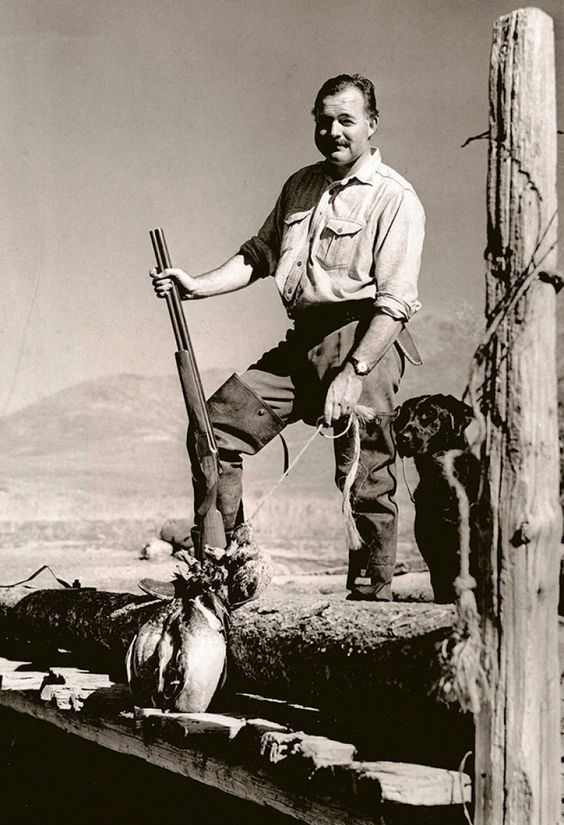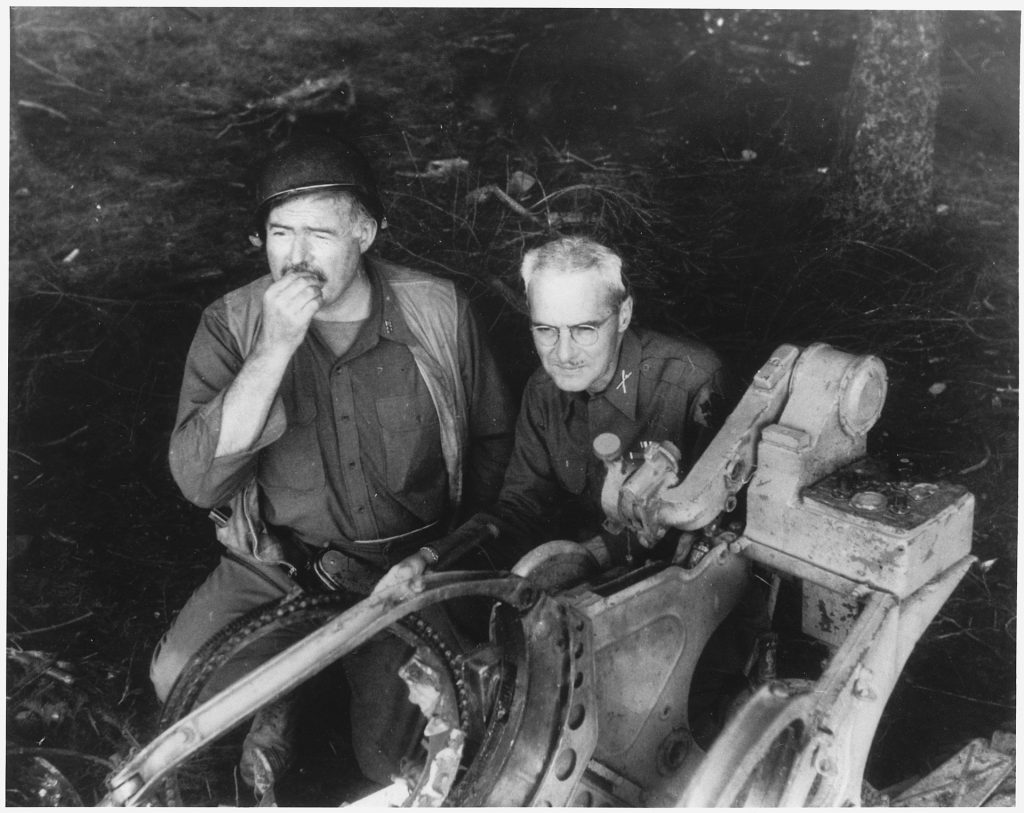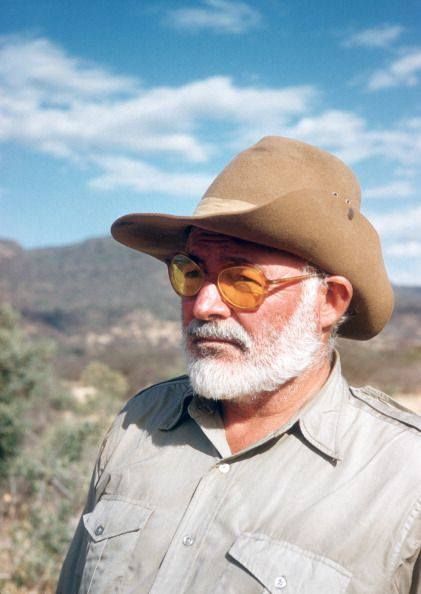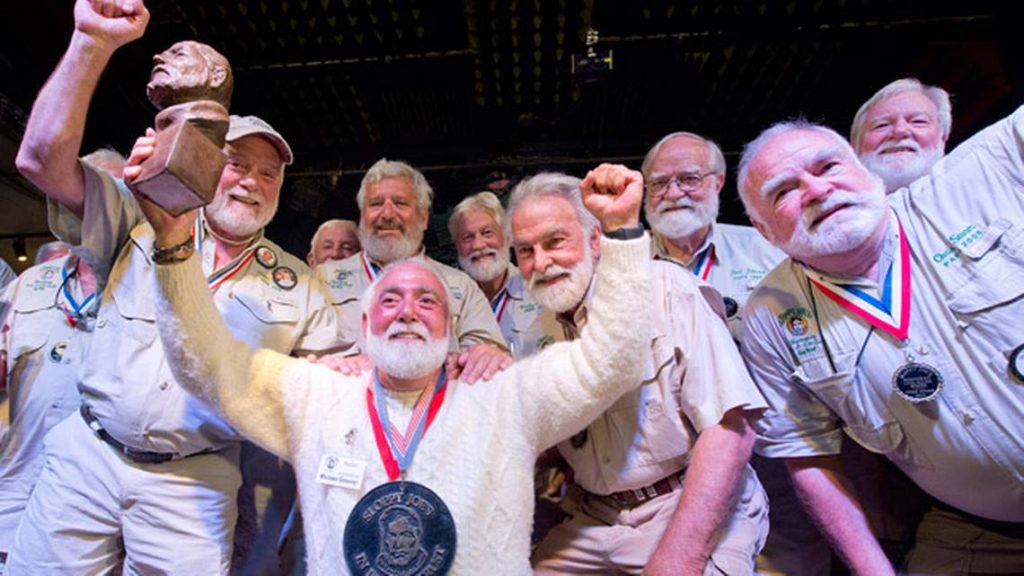Dear Hemingway Fans and Readers: I am completely apolitical on this Blog but found this article interesting. I majored in History at Smith College and one of my professors was the great historian, Max Salvadori, who stressed that events have to be put in context. While today, some behaviors may seem beyond comprehension, barbaric, unfathomable, the times were different and while bad is still bad, there is context. People are always saying to me, “Oh Hemingway. Wasn’t he a brute who liked bullfighting and he hunted animals in Africa. He’s despicable.” OK, I don’t like those things either but he was more than that as a person and a writer and it was a different time with different sensibilities. So, you too may find this article interesting. Thank you for reading. I added a few photos. Best, Christine
Larry Taunton: Did the Greatest Generation ‘fail’ us?

By Larry Alex Taunton | Fox News
Did the Greatest Generation fail us? Some historians seem to think so.
When I was a graduate student in history, it was my great privilege to learn from celebrated historian Forrest McDonald, a man who made his reputation trashing leftistnonsense.

In guiding my thesis, he cautioned me against a kind of nonsense common among historians: imposing the mores of our own time on those who lived in another. Curbing my youthful idealism without annihilating it, McDonald counseled me to recognize that while I might author history books, I am nonetheless a part of history and therefore subject to the same limited perspectives as those I would presume to judge.
It would, for example, be silly to judge history’s heroes by the ever-changing standards of today. One shudders to think of how the photos of Theodore Roosevelt posing with the dead elephants and rhinos he killed would be received on social media today. And what about Ernest Hemingway, who loved women, war and bullfighting? Surely, he would be required to attend sensitivity training to cure him of his “toxic masculinity.”
But this has not stopped “social justice warriors” who, ignorant of historical context but certain of the infallibility of their own judgment, still seek to impose impossible standards on the past. They aren’t rewriting history as much as they are reinterpreting it according to new progressive laws applied retroactively.
How would progressives — any of us, really — fare when measured against the standards of the generation that once saved the world?

Take, for example, a recent column authored by Case Western Reserve University Professor John Broich titled, “Allied leaders were anti-Nazi, but not anti-racist. We’re now paying the price for their failure.”
In his inflammatory essay, Broich accused the Greatest Generation of fighting World War II for the wrong reasons. According to Broich, both President Franklin Delano Roosevelt and British Prime Minister Winston Churchill “failed to comprehend the basic nature of German fascism.” They rallied their respective countries to go to war against Nazism for its “savagery and barbarism,” but not for its racism.

It takes more than a little temerity to assert that two of the 20th century’s most iconic and successful statesmen may not have understood the very thing they committed their vast resources to destroying. One might also think that racism falls under the broad umbrella of “savagery and barbarism.”
But things are different to the progressive mind.
“The leaders of the United States and Britain,” Broich wrote, “rarely attacked the core tenet of Nazism: the belief in a master race.”

The implication here is that Churchill and Roosevelt, failing to deliver a detailed treatise denouncing Nazi racial policy, must have had no strong objections to it. Most inflammatory of all, Broich makes the continental leap in logic from this to “the alarming rise of white-power violence, from Charlottesville to Pittsburgh and now to Poway, California.” And that, of courses, it what is meant by the assertion “we’re now paying the price for their failure.”

Failure? History demonstrates that the opposite is true.
I would remind Professor Broich that the Greatest Generation crushed Nazism under the tracks of tanks and at the cost of hundreds of thousands of lives; they liberated the Death Camps; and, unique in history up to that time, they established an international tribunal where they tried, imprisoned, and executed many of those who ran them. They then set their sights on another evil empire and, before departing this world, they destroyed that, too, liberating millions more.
Not a bad resumé.
Broich’s column didn’t get much play, but it is significant because it offers insight into the social justice warrior’s mentality that inspires the destruction of monuments and the reinterpretation of history at the safe distance of decades and centuries and from high atop ivory towers. Yes, it is true that the World War II generation didn’t solve all the world’s problems. Poverty, unemployment, war, racism and several dozen more problems remain. But in the words of Billy Joel, they didn’t start those fires. Some they inherited, others they bequeathed.

What’s next? Will they discover FDR didn’t favor same-sex marriage or that Supreme Court Justice Thurgood Marshall didn’t believe in climate change? God help their memories if they do.
Perhaps a more interesting question is this: How would progressives — any of us, really — fare when measured against the standards of the generation that once saved the world? Would they have been ready to endure the same privations of the Great Depression? To live their lives without any meaningful social welfare net to catch them? To storm the beaches of Normandy? To liberate Europe and Japan and to rebuild both? To make great leaps forward in addressing social and racial inequality? And to do it all without whining?
In light of such questions, maybe we should be humble, thankful, and avoid what C.S. Lewis called “chronological snobbery.”





